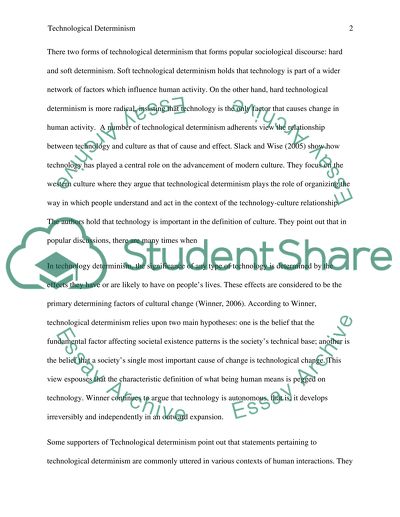Cite this document
(“Technological Determinism Essay Example | Topics and Well Written Essays - 1750 words”, n.d.)
Retrieved from https://studentshare.org/sociology/1437107-technological-determinism
Retrieved from https://studentshare.org/sociology/1437107-technological-determinism
(Technological Determinism Essay Example | Topics and Well Written Essays - 1750 Words)
https://studentshare.org/sociology/1437107-technological-determinism.
https://studentshare.org/sociology/1437107-technological-determinism.
“Technological Determinism Essay Example | Topics and Well Written Essays - 1750 Words”, n.d. https://studentshare.org/sociology/1437107-technological-determinism.


